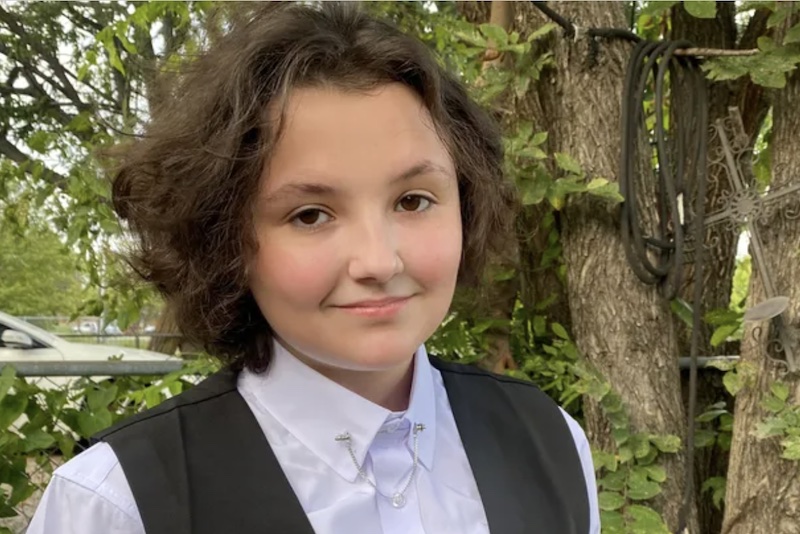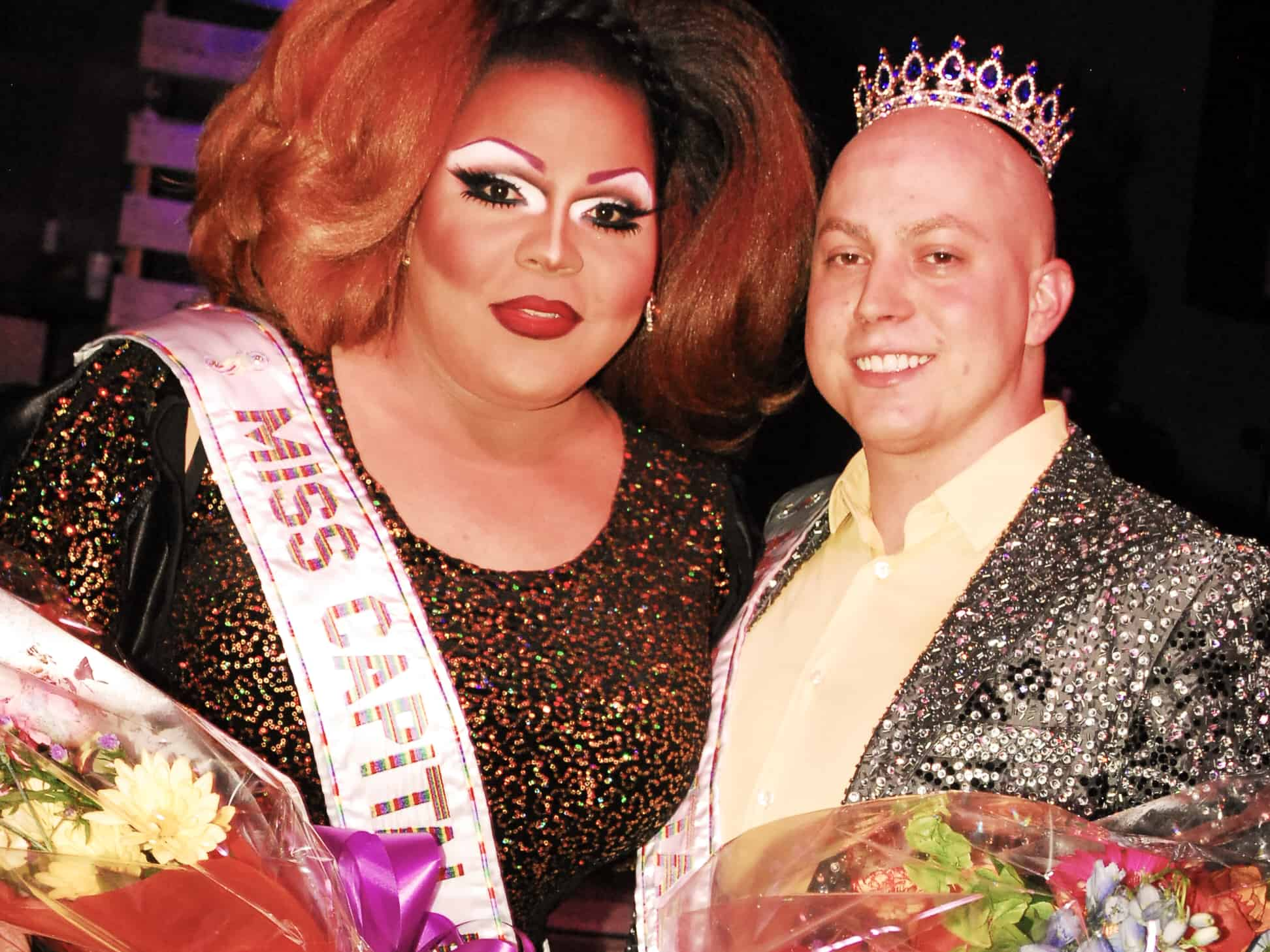Oklahoma might allow parents to ban books with LGBTQ or “sexual” content from libraries
Bill would penalize school districts that do not remove books containing LGBTQ or sexual content, if even a single parent objects to them.

A proposed bill in Oklahoma would allow individual parents to ban books they claim have “sexual content” from school libraries, a measure likely to be mimicked in other states as the Republican Party seeks to use parental rights as the next electoral wedge issue.
The bill, sponsored by State Sen. Rob Standridge (R-Norman) would prohibit school libraries from “maintain[ing] in its inventory or promot[ing] books that make as their primary subject the study of sex, sexual preferences, sexual activity, sexual perversion, sex-based classifications, sexual identity or gender identity,” as well as books of a “sexual nature” that parents would want to be informed of prior to their child being exposed to the book.
Under the bill, if even one parent objects to a book that meets that criteria, they can request that the book be removed, and the school has 30 days in which to remove it. If a school fails to remove the book, fines of $10,000 per day would be imposed on the school district that makes such materials accessible to students.
As written, there is some ambiguity regarding Standridge’s bill. For instance, it is unclear whether a novel featuring an LGBTQ character whose sexual orientation is not the “primary subject” or focus of the book would be banned, or whether any single reference, even in passing, to LGBTQ content or characters would be enough for conservative parents to tag the book as being of a “sexual nature” and thus banned.
Standridge told the McAlester News-Capital that he was prompted by complaints from parents and grandparents of public school students about books with sexual content for a couple of years. He cited examples of books that would be banned under his bill, such as the Trans Teen Survival Guide, Quick and Easy Guide to Queer and Trans Identities, A Quick and Easy Guide to They/Them Pronouns, and The Art of Drag.
While he acknowledged that all the books he’s objecting to address LGBTQ issues, Standridge insists his bill would apply to any heterosexual books that contain sexual content, such as Fifty Shades of Grey — but he also says he has been unable to find examples of such books in school libraries. He also said he’s not worried that schools would have to also remove the Bible due to some of its sexual content, because he contends that schools don’t have Bibles on library shelves.
If a school district refuses to remove a book, parents would have to sue and get an arbiter, he added.
“Most likely these things will end up in court,” Standridge said. “My guess is the schools won’t comply and the parents will have to seek injunctive relief. That will be up to the trier of fact. They may well disagree with the parent and say reasonable parents would want their children to be exposed to transgender, queer and other sexually-related books. I would doubt that.”
Critics of the bill question its constitutionality, and argue that the bill will disproportionately lead to bans on or removals of any LGBTQ-related literature.
Morgan Allen, the center director at Oklahomans for Equality, notes that similar bills in other states have been proposed but ultimately rejected because they’re unconstitutional. She also objected to the notion that LGBTQ-themed literature “grooms” or overly sexualizes children, instead arguing that it gives LGBTQ or closeted youth characters to whom they can relate.
“These books are there to give our kids the language that they need to express how they are already feeling, and that’s it,” Allen said. “These books are not there for anything else other than to affirm and show the kids their love for who they are, and that there are other people out there like them, that they are not alone. And if we take those books away from their libraries, then we’re saying that their schools and the people who are in those schools don’t see them for who they are, and that they are alone in those schools. And they’re not alone.”
She added that by bringing up bills such as Standridge’s, legislators are sending “negative messages” to LGBTQ youth, “telling them that they can’t be who they are, that they should be ashamed of who they are,” which can ultimately lead those youth to experience depression and suicidal ideation. Already, she said, nearly 1 in 4 LGBTQ youth in Oklahoma reported in a recent survey that they had attempted suicide — a rate much higher than the national youth suicide rate of 7%.
The Oklahoma Library Association said in a statement that it is “disappointed with” Standridge for filing the legislation without first contacting them. They also said the bill is duplicative because there are already procedures in place for parents to file complaints and demand a review of any books that have been flagged.

Standridge’s push for book banning comes as the national Republican Party, emboldened by its victories in statewide races in Virginia, has embraced parental rights as an issue, railing against schools and teachers, the content of school curricula, and the alleged “indoctrination” of students, and seeking to ban books or censor lessons deemed “inappropriate” by social conservatives.
Organized efforts by socially conservative parents have sprouted up throughout the the country, attacking school boards and public libraries over objectionable content. In Wyoming, local prosecutors, kowtowing to public pressure, have considered jailing librarians for violating obscenity laws for even having LGBTQ-themed or sexually-themed books in their collections.
Similarly, in Fairfax County, Virginia, the school board temporarily removed two controversial books — Gender Queer, by Maia Kobabe, and Lawn Boy, by Jonathan Evison, which have also been banned in other school districts in Texas and Iowa — over explicit sexual content contained in the books. A committee of parents, teachers, and students eventually decided to return the books to high school library shelves after ruling that the sexual content was not the primary focus of the books, and did not, as alleged, contain scenes containing pedophilia.
In Texas, Gov. Greg Abbott (R) has ordered the Texas Education Agency, the Texas State Board of Education, and the Texas State Library and Archives Commission, to develop statewide standards to prevent “pornography” and other “obscene content” from entering school libraries, and demanding that parents be informed of how to file a formal grievance to request that objectionable books be pulled from library shelves.
See also:
Crunch Fitness tells members to stop having sex in the men’s locker room
Lil Nas X accuses music industry of ‘sanitizing’ LGBTQ artists
Arizona Republican wants to jail doctors who provide medical care to transgender youth
Support Metro Weekly’s Journalism
These are challenging times for news organizations. And yet it’s crucial we stay active and provide vital resources and information to both our local readers and the world. So won’t you please take a moment and consider supporting Metro Weekly with a membership? For as little as $5 a month, you can help ensure Metro Weekly magazine and MetroWeekly.com remain free, viable resources as we provide the best, most diverse, culturally-resonant LGBTQ coverage in both the D.C. region and around the world. Memberships come with exclusive perks and discounts, your own personal digital delivery of each week’s magazine (and an archive), access to our Member's Lounge when it launches this fall, and exclusive members-only items like Metro Weekly Membership Mugs and Tote Bags! Check out all our membership levels here and please join us today!

























